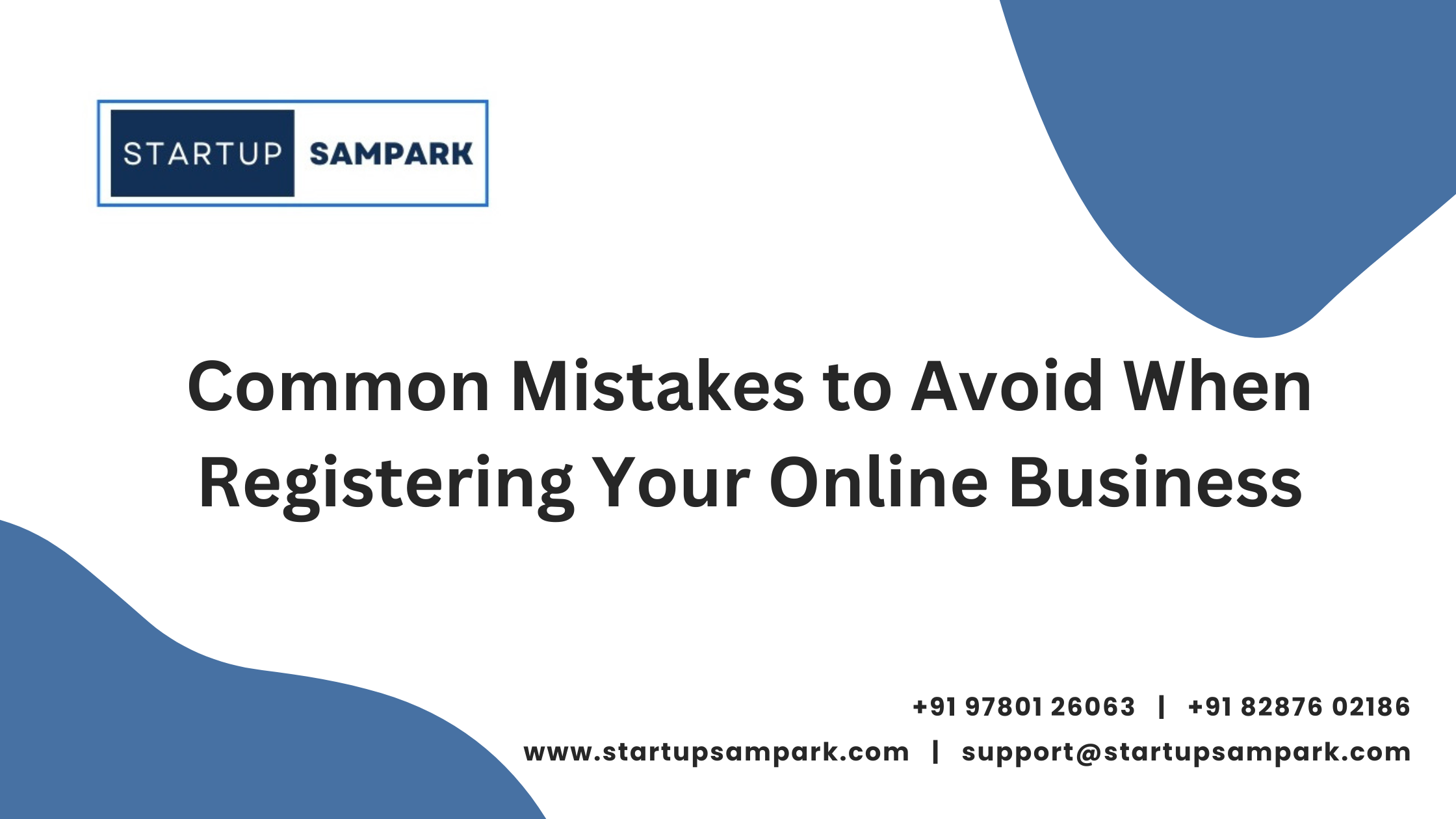Common Mistakes to Avoid When Registering Your Online Business
Choosing the Wrong Business Structure
One of the most common mistakes when registering an online business in India is selecting an inappropriate business structure. Entrepreneurs often rush into registration without evaluating which structure—sole proprietorship, partnership, private limited company, or limited liability partnership (LLP)—aligns with their business goals. For instance, if your online business plans to scale and attract investors, a private limited company is usually the best choice. Conversely, a sole proprietorship might suffice for a small-scale operation. Selecting the wrong structure can result in complications related to compliance, taxation, and funding down the line. It’s essential to consult professionals to understand the legal and financial implications of each structure before proceeding.
Failing to Check Business Name Availability
A common yet critical oversight is failing to check the availability of the desired business name or trademark before registration. Many entrepreneurs finalize a name for their business without verifying whether it is already in use or registered by another entity. This can lead to trademark disputes and rebranding costs, causing unnecessary delays and legal issues. Before registering your business, it’s crucial to perform a thorough search for name availability on the Ministry of Corporate Affairs (MCA) portal and the Indian Trademark Registry. A unique and legally compliant business name protects your brand identity and helps avoid future complications.
-
 Startup Registration (DPIIT Recognition)₹8,850.00
Startup Registration (DPIIT Recognition)₹8,850.00
Incomplete or Incorrect Documentation
Incomplete or incorrect documentation is a frequent mistake during the registration process. Many online business owners fail to provide accurate details or submit incomplete forms, leading to delays or outright rejection of their application. For example, discrepancies in the business address, director details, or financial statements can cause significant hurdles. It’s crucial to double-check all documents, such as the Certificate of Incorporation, PAN card, address proof, and identity documents of the founders or directors, to ensure they are accurate and up-to-date. Engaging a legal or financial consultant to review the documentation can help minimize errors.
Neglecting Tax Registration Requirements
Tax compliance is a vital aspect of business registration that is often overlooked by new entrepreneurs. Some fail to register for the Goods and Services Tax (GST) even when their online business surpasses the mandatory turnover threshold of ₹20 lakh (₹10 lakh for special category states). Without GST registration, businesses cannot issue proper invoices, claim input tax credit, or comply with tax laws, which could result in penalties or loss of customer trust. Even if your business operates below the threshold, registering for GST voluntarily can enhance your credibility and streamline operations, especially for online businesses dealing with interstate sales.
Ignoring Intellectual Property (IP) Protection
For online businesses, protecting intellectual property such as logos, brand names, and innovative products is essential, yet it is often ignored during the registration phase. Many startups delay filing for trademarks, patents, or copyrights, leaving their business vulnerable to imitation or infringement. For instance, if a competitor registers a similar name or product, it can create confusion in the market and lead to costly legal disputes. Proactively filing for IP protection at the time of registration safeguards your business’s unique identity and provides a competitive edge in the marketplace.
Underestimating Compliance and Legal Obligations
Another common mistake is underestimating the compliance and legal obligations required after registration. Entrepreneurs often assume that once the business is registered, their responsibilities are complete. However, ongoing compliance tasks such as filing annual returns, maintaining financial records, and adhering to labor and environmental laws are crucial to avoid penalties and maintain good standing. Online businesses must also ensure compliance with data protection laws, especially when dealing with customer data. Establishing a robust compliance framework from the start helps avoid operational disruptions and ensures the business remains legally sound as it grows.
Startup, India
-
 Startup Registration (DPIIT Recognition)₹8,850.00
Startup Registration (DPIIT Recognition)₹8,850.00















Post Comment